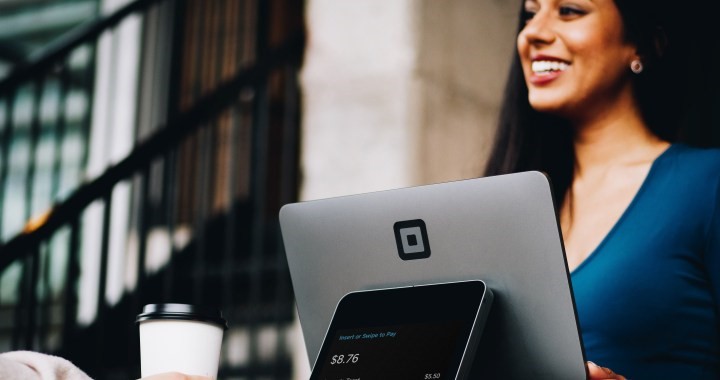It was a rainy, warm morning in Amsterdam. My umbrella and I walked through the city center to meet with a group of freelancers for lunch. The get-together was not only about sharing food but also ideas on balancing states of being and doing in our careers and personal lives.
The question is especially interesting for entrepreneurs who decide on their own working hours. How do we cope with the urge to always do more, take on more projects, learn new skills… and when is it enough?
Are we ever in acceptance with our own imperfections? Is it really about the journey, or do we expect to arrive at some magical destination where we finally are all we ever wanted to be?
Freelancer or not, many of us have this syndrome. Even with full-time jobs, we might feel like being an employee, a partner, a mother, and a friend is just a bare minimum of what we expect from ourselves. We also “need” to do charity work, follow our passions, bake cute (but healthy) muffins for our kids, and meditate every morning.
For me, it’s easy to fall into the trap of never-ending self-improvement. After learning how to sew, I needed to (did I really?) learn to play drums. Then, I took a course in writing a novel. And all of this on top of countless online courses, podcasts, and audiobooks. I’ve been on another self-improvement high when that lunch talk gave me a much-needed wake-up call. Here are a few strategies used by creative people to follow their ambitions while staying sane.
Surf the wave
It was incredibly liberating to hear that I’m not the only one for whom motivation comes in waves. There are weeks when work seems to flow naturally and times when just getting out of bed is too much of a struggle.
For Julian of De Beeldmaecker, who was sitting across from me at lunch, this flow can change even during the same day – but only if he allows himself space and time for doing absolutely nothing. After the mind can wander freely and simply be bored, creativity and energy start flowing naturally.
“Surfing the wave”, as Julian calls it, is especially important in self- development. Not much will change in our lives just by consuming new information; we also need to allow space for it to sink in and for us to embody the changes.
In the words of Vishen Lakhiani, the founder of Mindvalley, learning is not the same as transforming oneself. For new information to become part of our lives, we need to shift our beliefs and adjust our daily habits, both of which require time and mind space.
It won’t happen if we keep on slamming our minds with new input.
The trick is to know what wave to surf at that particular moment in life. Is this new skill important for my career right now? Does it align with my values? Does it bring me any closer to the life vision I created for myself?
Allow time to rest
In the midst of the recent mindfulness craze, we often forget about the power of mindlessness. You know, the state of mind you used to get into as a kid, staring out of the window during class, daydreaming, and then being scolded for it by your teacher.

The state of unfocus is crucial for the creative process. By cruising from one thought to a seemingly unrelated one, the mind organizes information, looks for solutions to problems, and rests. I don’t think anybody needs convincing that the best ideas happen in the shower.
The problem is, though, that we tend to rest either when we’re already exhausted, or practice what I call “scheduled rest”. That is, we only allow ourselves to be idle on the weekends and during holidays (although many of us have trouble with it too).
But what if we feel like doing nothing on a Monday afternoon? To at least look productive, we procrastinate behind our desks by scrolling through Facebook, while it’d be much more fruitful to go for a short walk or stare at the horizon for a while.
Let’s also not underestimate the power of a good night’s sleep – one of the main drivers behind our motivation, performance, and creativity. During our PPW workshop The Power of Sleep on September 3, Dr. Els van der Helm shared the science of sleep and methods for hacking it to become a better version of ourselves. After all, Dr. Van der Helm’s inspiring life mission is to contribute to a “more harmonious society with energetic people who feel good about themselves.”
Practise self-love
For me, the need to always do more comes from a lack of trust in myself and my abilities. It’s usually helpful to look inward and ask myself: is this coming from trying to prove to be worthy of love and respect? Do I feel that – in the state that I’m in right now – I’m not enough?
Sam, a graphics designer I met at lunch, shared a strategy for building trust in yourself that involves looking back at what you’ve already accomplished. Only looking at the road ahead can be daunting because there is always somewhere else we’re trying to get to.
I love Sam’s advice and I practice it on special occasions like New Year’s Eve and my birthday. Appreciating how far I’ve come since the year before teaches me respect for myself and trust in the process. It’s like watching your kids grow – the changes from one day to the other are too small to notice. The sudden realization of growth only strikes once you stumble upon a photo of them from last year.
Another great strategy is expressing gratitude for the good in our lives. We tend to focus on what we still need to achieve, what we lack, and what goes wrong. But if – for a few minutes a day – we appreciated how great a meeting with a client went, how energized we felt during that jog, or what a nice compliment we received about our work, we’d become much more trusting and confident.
The practice of meditation also makes us more in tune with our own feelings. For Emeline, a founder of the Collective Minds, it’s helpful to recognize where a negative feeling is in the body. For example, when a browser has a million tabs open and the anxiety arises, you can ask yourself: is it in the stomach? Or is it a constricting feeling in the chest that makes your breathing shallow?
Once we know where the feeling “sits” – Emeline says – we can acknowledge it and ask ourselves what we need at that point to feel better. Sometimes it’s as simple as taking a break. Sometimes it’s walking away from a project that didn’t feel quite right.
And most importantly, be kind to yourself as if you’d be kind to a child. If you imagine yourself as a kid, you certainly wouldn’t expect him or her to do everything at once. You’d be much more understanding of their process and patient with their development. So be that loving parent to yourself.
Say “no”
Raise your hand if you’ve been guilty of this at some point in your life: accepting every opportunity that comes your way, saying “yes” to helping others no matter what, volunteering for yet another bake sale… Even if you can squeeze in a few additional hours per week, you have to remember that your energy and mind space are as valuable as your time. “You can do anything, but not everything”, or so the inspirational quote goes.
At first, saying “no” feels awkward. The fear of disappointing others and coming off as selfish is scary. But you’ll see very quickly that, when expressed with respect and honesty, a gentle decline is usually received with understanding. It shows strength rather than weakness. It communicates to your surroundings that you know your values and priorities and that you design your life accordingly. As creative people know, editing out what doesn’t quite fit is the essence of good writing, photography, design…and life.
As the mantra of Collective Minds goes: “What you’re saying ‘no’ to will define your business [and life] much more than what you’re saying ‘yes’ to.”
For updates on new workshops and events follow up on Facebook and LinkedIn.

Written by Sonia Kolasinska: PPW Blogger, half- wordsmith and half- marketing badass. Writing copy and content for conscious brands who bring value to the world is her life mission.
